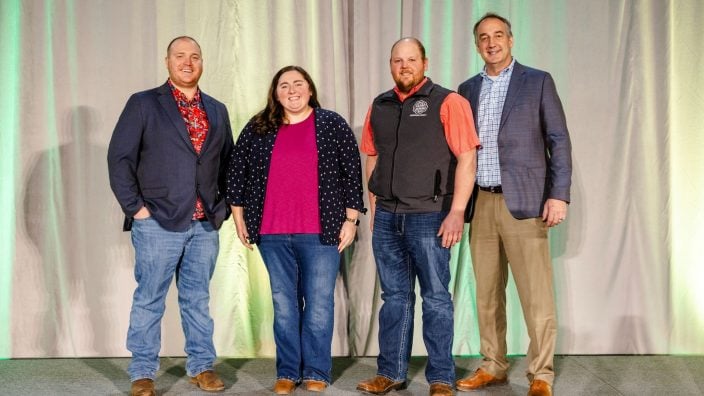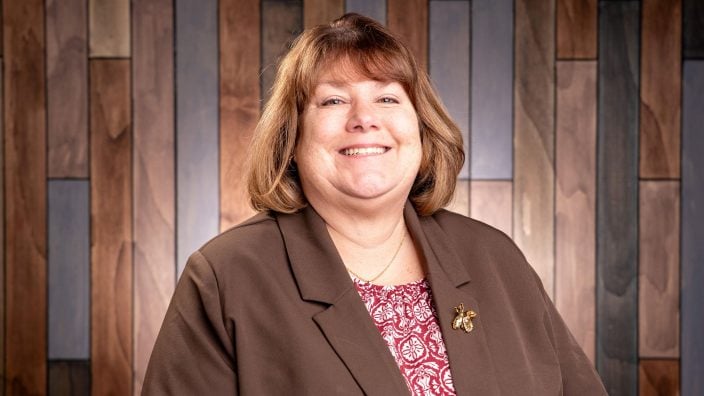Applications for Ohio Farm Bureau Health Plans now available
Members have three ways to apply: contacting a certified agent, calling 833-468-4280 or visiting ohiofarmbureauhealthplans.org.
Read MoreSen. Sherrod Brown hosted a virtual roundtable with Ambassador Katherine Tai, 19th United States Trade Representative, and Ohio farmers, workers and manufacturers to discuss the impact of trade policy on Ohio communities.
“I’ve noticed that trade policy over the past number of years with presidents of both parties have mostly been written in corporate boardrooms on Wall Street and in the halls of Congress, and a trade representative really hasn’t listened to workers and farmers in small town Ohio,” Brown said. “I think what Ambassador Tai heard was how trade policy, done well or done badly, really affects farmers and exports. I think she heard what she needed to make a more positive difference in our trade policy.”
Brown recapped the roundtable for Ohio Farm Bureau’s radio show, Our Ohio Weekly, and said he believes one of the biggest differences in trade policy from the Biden administration is the enforcement of rules overseas for U.S. companies that have shut down domestic production to move somewhere else due to tax policies, cheap labor and weak environmental standards. He also thinks Ambassador Tai will make changes to how tariffs are used.
“Tariffs can help, but you have to be careful with what the other countries do that can affect agriculture,” Brown said. “I don’t think we have thought that through very well, and I think the new ambassador will.”
Brown also has been visiting with his constituents about some tax policy changes being discussed in Washington. He said farm families will benefit from some of the more substantial tax revisions being looked at.
“Corporate income tax went from 35% to 21%, and Treasury Secretary Yellen is trying to do an international 15% minimum corporate tax for all countries, and that will help farm families everywhere,” Brown said. “I know that some organizations have said that some of these proposals that are aimed at the rich will hurt others, but I have seen in this country over the last 20 years that it’s middle class people, whether they are farm families or factory families or small business, that have too often bore the brunt of the tax code.”
Other proposals inside the Beltway would eliminate stepped-up basis, double capital gains tax rates and charge a new capital gains tax at death on the appreciation of assets like farmland. Ohio Farm Bureau has issued an Action Alert, encouraging members to write to their members of Congress today about these possible tax policy changes.


Members have three ways to apply: contacting a certified agent, calling 833-468-4280 or visiting ohiofarmbureauhealthplans.org.
Read More

Legacy nutrient deductions enable new farmland owners to claim deductions on the nutrients within the soil on which healthy crops depend.
Read More

Farmers, agribusinesses and community members are encouraged to nominate their local fire departments for Nationwide’s Nominate Your Fire Department Contest through April 30.
Read More

Introduced by Sen. Paula Hicks-Hudson, SB 120 would establish the Urban Farmer Youth Initiative Pilot Program.
Read More

Gases, vapors, and fumes can all create risk. How can we measure and protect ourselves from them?
Read More

The Ohio Farm Bureau’s Young Agricultural Professionals State Committee has named its 2026 leadership and the individuals who will be serving on the state committee for 2026-2028.
Read More

The Ohio Farm Bureau Foundation has multiple scholarships available to Ohio students from rural, suburban and urban communities who are pursuing degrees with a connection to the agricultural industry.
Read More

With 100% bonus depreciation now permanent, farmers can deduct the full cost of a new agricultural building in the year it’s placed in service.
Read More

Lincoln Deitrick was named the Outstanding Young Farmer, Denver Davis won the Excellence in Agriculture Award, and Margaret Houts won the Discussion Meet.
Read More

Michelle Downing of Franklin County has been named finance director of county operations for Ohio Farm Bureau.
Read More